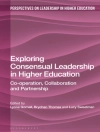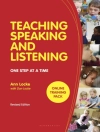Captivating, concise, and accessible, Essentials of Terrorism: Concepts and Controversies covers key foundational topics by defining terrorism and introducing its history and causes. Author Gus Martin introduces readers to the modern landscape of terrorism and discusses terrorist environments (domestic, international, religious, etc.), as well as tactics, targets, and counterterrorism. Included in the Sixth Edition is an added focus on U.S. hate crimes and homeland security, in addition to new introductory discussions, information, and data throughout each chapter.
Inhoudsopgave
About the Author
Preface
Acknowledgments
Part I: Understanding Terrorism: A Conceptual Review
Chapter 1: Defining Terrorism
Learning Objectives
Understanding Political Extremism
Formal and Informal Definitions
Objectives and Goals of Terrorism
Playing to the Audience: Objectives, Victims, and Constituencies
Terrorists or Freedom Fighters?
The Political Violence Matrix
Chapter Summary
Key Terms and Concepts
Recommended Readings
Chapter 2: Historical Perspectives and Ideological Origins
Learning Objectives
Historical Perspectives on Terrorism
Ideological Origins of Terrorism
September 11, 2001, and the New Terrorism
Chapter Summary
Key Terms and Concepts
Recommended Readings
Chapter 3: Causes of Terrorist Violence
Learning Objectives
Political Violence as the Fruit of Injustice
Political Violence as Strategic Choice
Moral Justifications for Political Violence
Chapter Summary
Key Terms and Concepts
Recommended Readings
Chapter 4: Terrorist Violence and the Role of the Media
Learning Objectives
Understanding the Role of the Media
A New Battleground: The War for the Information High Ground
Chapter Summary
Key Terms and Concepts
Recommended Readings
Part II: Terrorist Environments
Chapter 5: Terrorism by the State
Learning Objectives
Perspectives on Terrorism by Governments
Domestic Terrorism by the State
Terrorism as Foreign Policy
Chapter Summary
Key Terms and Concepts
Recommended Readings
Chapter 6: Terrorism by Dissidents
Learning Objectives
Perspectives on Violent Dissent
The Practice of Dissident Terrorism
Terrorist Targets and Weapons
Dissidents and the New Terrorism
Chapter Summary
Key Terms and Concepts
Recommended Readings
Chapter 7: Religious Terrorism
Learning Objectives
Historical Perspectives on Religious Violence
The Practice of Religious Terrorism
Trends and Projections
Chapter Summary
Key Terms and Concepts
Recommended Readings
Chapter 8: International Terrorism
Learning Objectives
Understanding International Terrorism
International Terrorist Networks
The International Dimension of the New Terrorism
Chapter Summary
Key Terms and Concepts
Recommended Readings
Chapter 9: Domestic Terrorism in the United States
Learning Objectives
Are “Hate Crimes” in the United States Acts of Terrorism?
Left-Wing Extremism in the United States
Left-Wing Terrorism in the United States
Right-Wing Extremism in the United States
Right-Wing Terrorism in the United States
Understanding the Persistence of Violent Ideologies in the United States
Chapter Summary
Key Terms and Concepts
Recommended Readings
Part III: The Terrorist Battleground
Chapter 10: Counterterrorism and the War on Terrorism
Learning Objectives
The Use of Force
Operations Other Than War: Repressive Options
Operations Other Than War: Conciliatory Options
Legalistic Responses
Chapter Summary
Key Terms and Concepts
Recommended Readings
Chapter 11: Homeland Security
Learning Objectives
Homeland Security in Perspective
Homeland Security in the United States
Civil Liberties and Securing the Homeland
Chapter Summary
Key Terms and Concepts
Recommended Readings
Chapter 12: Future Trends and Projections
Learning Objectives
What Does the Future Hold?
Revisiting the War on Terrorism
Chapter Summary
Key Terms and Concepts
Recommended Readings
Appendix: Map References
Glossary
Notes
Index
Over de auteur
Clarence Augustus “Gus” Martin is a Professor and founding Chair of the Department of Criminal Justice Administration at California State University, Dominguez Hills, where he teaches courses on terrorism and extremism, criminal law, and the criminal justice system. He has served as founding Director of the School of Public Service and Justice. He also served as Associate Vice President for Human Resources Management, Acting Associate Dean of the College of Business Administration and Public Policy, Associate Vice President for Faculty Affairs, and Chair of the Department of Public Administration. He began his academic career as a member of the faculty of the Graduate School of Public and International Affairs, University of Pittsburgh, where he was an Administration of Justice professor. His current research and professional interests are terrorism and extremism, homeland security, and the administration of justice.Dr. Martin is author of several books on the subjects of terrorism and homeland security, including Understanding Terrorism: Challenges, Perspectives, and Issues (Sage, 2025); Terrorism and WMDs: Awareness and Response, Third Edition (with John Pichtel, CRC Press, 2025); Understanding Homeland Security (Sage, 2024); The Handbook of Homeland Security (with Scott Romaniuk and Martin Scott Catino; Routledge, 2023); Essentials of Terrorism: Concepts and Controversies (Sage, 2022); Terrorism: An International Perspective (with Fynnwin Prager; Sage, 2019); The SAGE Encyclopedia of Terrorism, Second Edition (Sage, 2011); Terrorism and Homeland Security (Sage, 2011); and The New Era of Terrorism: Selected Readings (Sage, 2004). He is also author of Juvenile Justice: Process and Systems (Sage, 2005).Prior to joining academia, Dr. Martin served as Managing Attorney for the Fair Housing Partnership of Greater Pittsburgh, where he was also director of a program created under a federal consent decree to desegregate public and assisted housing. He was also Special Counsel to the Attorney General of the U.S. Virgin Islands on the island of St. Thomas. As Special Counsel, he occupied a personal and confidential position in the central office of the Department of Justice; sat as hearing officer for disciplinary hearings and departmental grievances; served as chair of the Drug Policy Committee; served as liaison to the intergovernmental Law Enforcement Coordinating Committee as well as to the Narcotics Strike Force; and provided daily legal and policy advice to the Attorney General. Prior to serving as Special Counsel, he was a “floor” Legislative Assistant to Congressman Charles B. Rangel of New York. As Legislative Assistant, he researched, evaluated and drafted legislation in areas of foreign policy, foreign aid, human rights, housing, education, social services, and poverty; he also drafted House floor statements, Congressional Record inserts, press releases, and news articles; and he composed speeches, briefing materials, and legislative correspondence.Dr. Martin received his A.B. degree from Harvard College, J.D. from Duquesne University Thomas R. Kline School of Law, and Ph.D. from the Graduate School of Public and International Affairs at the University of Pittsburgh.












